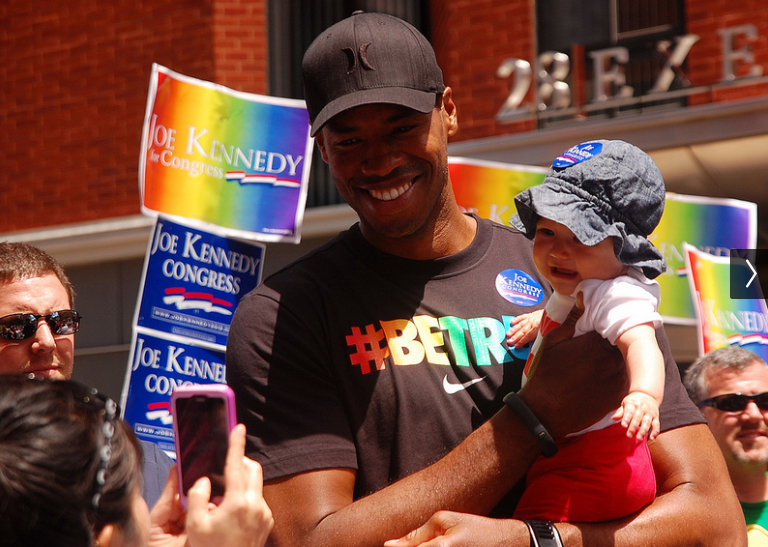
After the Brooklyn Nets announced the signing of center Jason Collins to a 10-day contract on Feb. 23, the team became the first in NBA history to have an openly gay player on its active roster. Collins, who publicly came out last April, is expected to see playing time in several of the Nets’ upcoming contests before his contract expires.
Brooklyn is no stranger to breaking seemingly impenetrable barriers in sports — on April 15, 1947, the Brooklyn Dodgers fielded the first African-American MLB player of the modern era when Jackie Robinson started at first base for the Dodgers at Ebbets Field. To this day, Robinson is viewed as an important figure in the Civil Rights movement. While Collins will not be seen at Brooklyn’s Barclays Center until at least March 3, the significance of the moment will not be lost.
With Collins ready to resume his NBA career — this time with his sexuality out in the open — the stage is set for professional basketball to breach an important frontier in gay rights. Despite the flood of recent popular support for same-sex marriage and court decisions striking down bans on gay marriage, professional sports are lagging behind. The machismo sports culture and the conservative religiosity among athletes have affected this delay. Teams have been hesitant to fully accept the emergence of gay athletes, with some sources going so far as to say the locker room is not ready for gay teammates and that the presence of gay players could serve as a distraction.
Arguments regarding perceived readiness to accept change seem tenuous. Change is an inevitable part of the evolution of institutions and it is time that professional sports make inroads toward encouraging acceptance of those who do not fit the traditional athlete archetype. Moreover, claims of a gay player acting as a distraction are suspect, especially given the willingness of many professional sports teams to sign criminals and locker room bullies to multimillion-dollar contracts for the sake of winning games. Recent examples of poor character in athletes include ex-New England Patriots tight end Aaron Hernandez, who has been convicted of murder, and ex-Atlanta Falcons quarterback Michael Vick, who spent time in jail for dog fighting.
In an age of increased tolerance and acceptance of homosexuality, prominent and successful gay athletes would encourage others to follow in their footsteps by providing this generation a new set of role models to look up to, as Jackie Robinson and other brave pioneers did 67 years ago. Although change may only be reached with small steps, Collins’ playing in the NBA will benefit society in the long run. An institution as ubiquitous as sports, an institution many enjoy, can ultimately lead to positive change. Society must judge athletes based on their abilities and character rather than by their sexual orientation.
A version of this article appeared in the Tuesday, Feb. 25 print edition. Charles Surette is a contributing writer. Email him at [email protected].





















































































































































